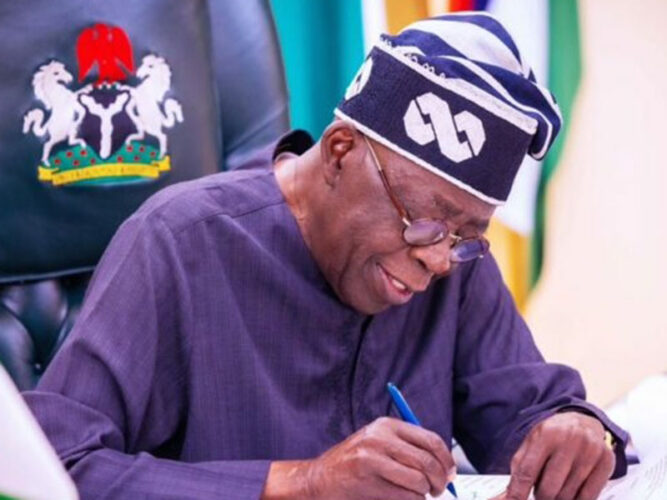The Federal Government announced on Tuesday that it has reinstated the suspended social investment programme, which aims to provide direct payments to 75 million Nigerians across 50 million households to alleviate the suffering of citizens, especially vulnerable groups. The cash transfer scheme has been revamped to address issues of fraud.
Wale Edun, the Minister of Finance and Coordinating Minister of the Economy, made this announcement during a ministerial sectoral briefing marking President Bola Tinubu's first year in office. On January 12, Tinubu had suspended all programmes managed by the National Social Investment Programme Agency (NSIPA) for six weeks as part of an investigation into alleged mismanagement. Additionally, on January 8, the president suspended Betta Edu, the Minister of Humanitarian Affairs and Poverty Alleviation, whose ministry oversees NSIPA.
The suspension affected initiatives such as N-Power, the conditional cash transfer scheme, the government enterprise and empowerment programme, and the home-grown school feeding initiative. On March 13, the House of Representatives called for the resumption of these social investment initiatives.
To revamp the programme, Tinubu established a Special Presidential Panel led by Edun to conduct a thorough review and audit of the existing financial frameworks and policy guidelines. During the briefing, Edun provided an update on the committee's actions, stating that the government has decided to restart the programme to support poor Nigerians.
Edun explained, "I am obligated to provide an overview of the strategy, policies, and implementation of Mr. President’s reform programme. Immediately upon taking office, Mr. President launched macroeconomic reforms to restore stability to the Nigerian economy, including subsidy and foreign exchange market reforms. These reforms have increased costs for individuals and businesses, but Mr. President is dedicated to mitigating the negative impacts through social interventions."
The government has restarted the social investment programme, offering direct payments to 75 million Nigerians in 50 million households. Additionally, access to credit has been improved, with N1bn allocated for consumer credit and grants of 50,000 Naira provided to 1 million small businesses.









